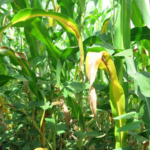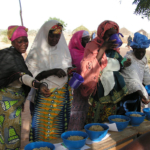


Lilongwe University of Agriculture and Natural Resources
Ministry of Agriculture, Irrigation and Water Development MoAIWD), ICRISAT -International Crops Research Institute for the Semi-Arid Tropics, National Shallholder Farmer Association of Malawi (NASFAM), Total Land Care
Malawi
11/2018—11/2021
Malawi is a small, low-income country with an agriculture-based economy. Yields are low; generally, less than 1 ton per acre for maize, the main staple. Households typically farm around 2 acres of rainfed land and struggle to feed their families. Major production constraints include declining soil fertility, increasingly unpredictable rainfall, pests and diseases, and unaffordable farm inputs. The country is agroecologically diverse with variations in soil health because of long-term farming practices. The dominant approach in agricultural research, extension, and development in Malawi has been modernization: promotion of synthetic fertilizers and agrochemicals to achieve short-term increases in maize yields. This approach has only been successful in increasing production when supported by high levels of input subsidies, which have been neither economically nor environmentally sustainable.
Over the past two decades, several institutions have followed an alternative approach of supporting farmers to increase production of maize and other crops while at the same time maintaining or improving their natural resource base. Researchers from national and international research institutions and universities—many supported by the CCRP—have been working with smallholder farmers to develop technologies to meet their complex and diverse farming needs, including legume varieties for particular agroecologies and markets, maize-legume cropping systems for production and soil health, and botanical pesticides. Farmer research networks (FRNs) are increasing the range of contexts and level of farmer engagement in research. A small number of training and extension initiatives—mainly by non-governmental organizations—promote farming based on agroecological principles.
The project establishes and operationalizes an agroecology hub in Malawi. The vision is a network of organizations supporting research that can respond to challenges and opportunities facing smallholder farm families in complex, risk-prone environments. Hub members include universities, farmer organizations, FRNs, research institutes, non-governmental organizations (NGOs), extension services, and private sector organizations. Farmer organizations and FRNs will identify priority issues for research in collaboration with other hub members and policy and research platforms. Research questions are generated through a participatory process and form the basis for a coherent program of farmer participatory research in which students play a leading role. The hub facilitates evaluation and testing of promising practices and methodologies for agronomic, economic, social, environmental, and nutritional benefits using a systems approach. Findings from the research activities contribute to a growing body of knowledge that is documented and shared with the wider community. The knowledge will enrich curricular content in universities and training institutes. The evidence generated is used for influencing policy on supporting agroecological systems. Learning within the hub will inform understanding of research partnerships and FRNs.
Outputs:
Outcomes:

